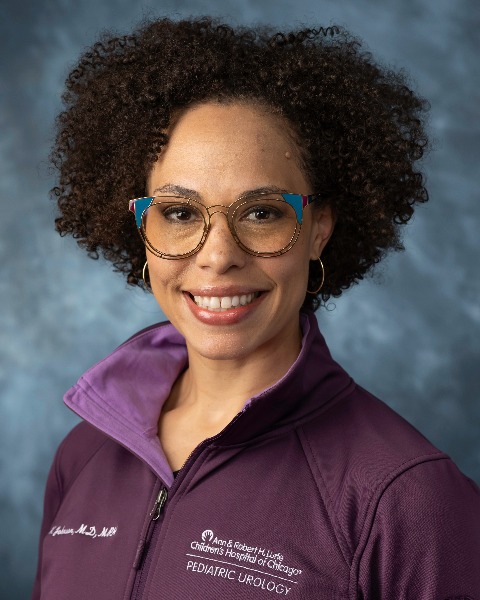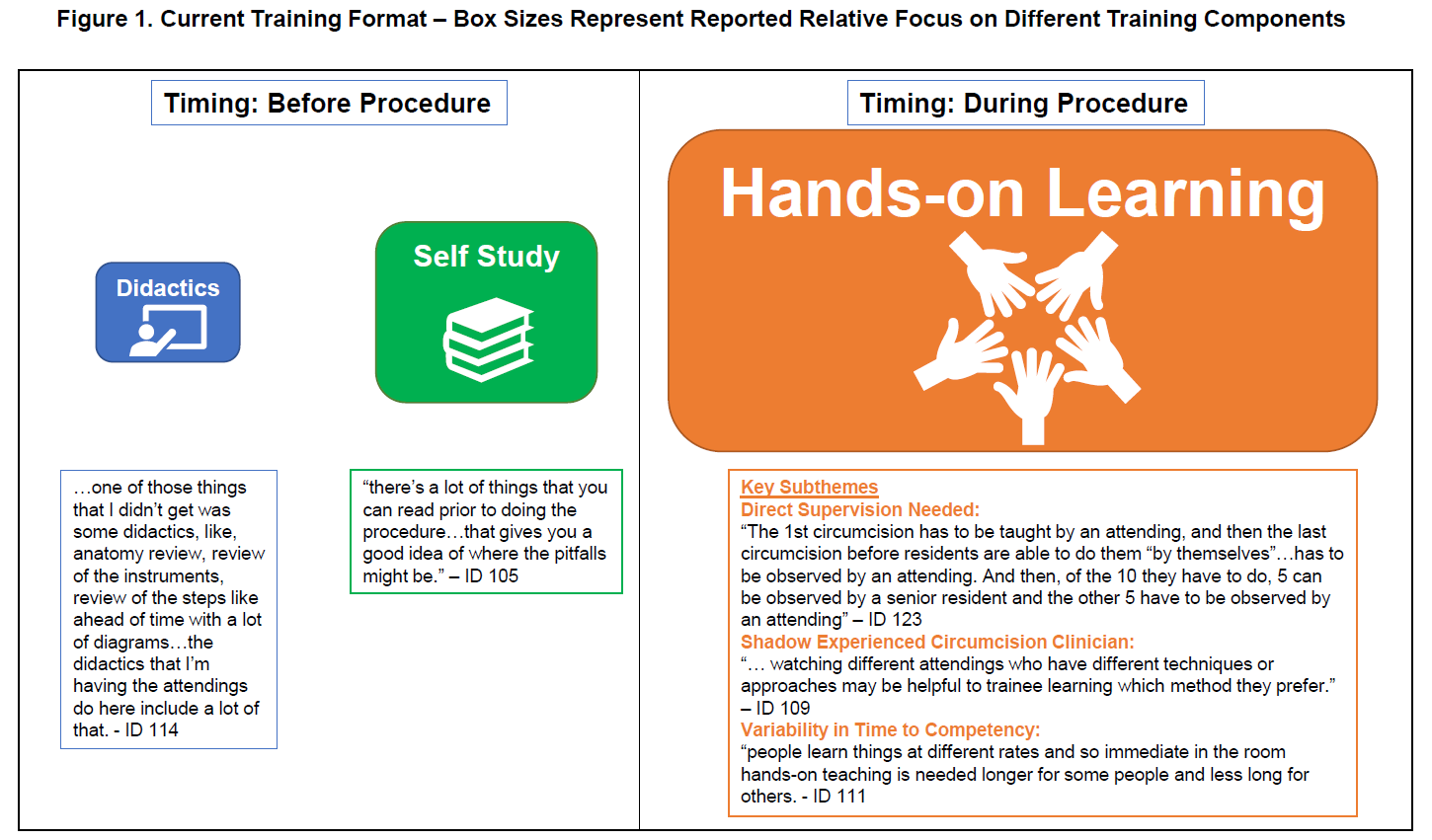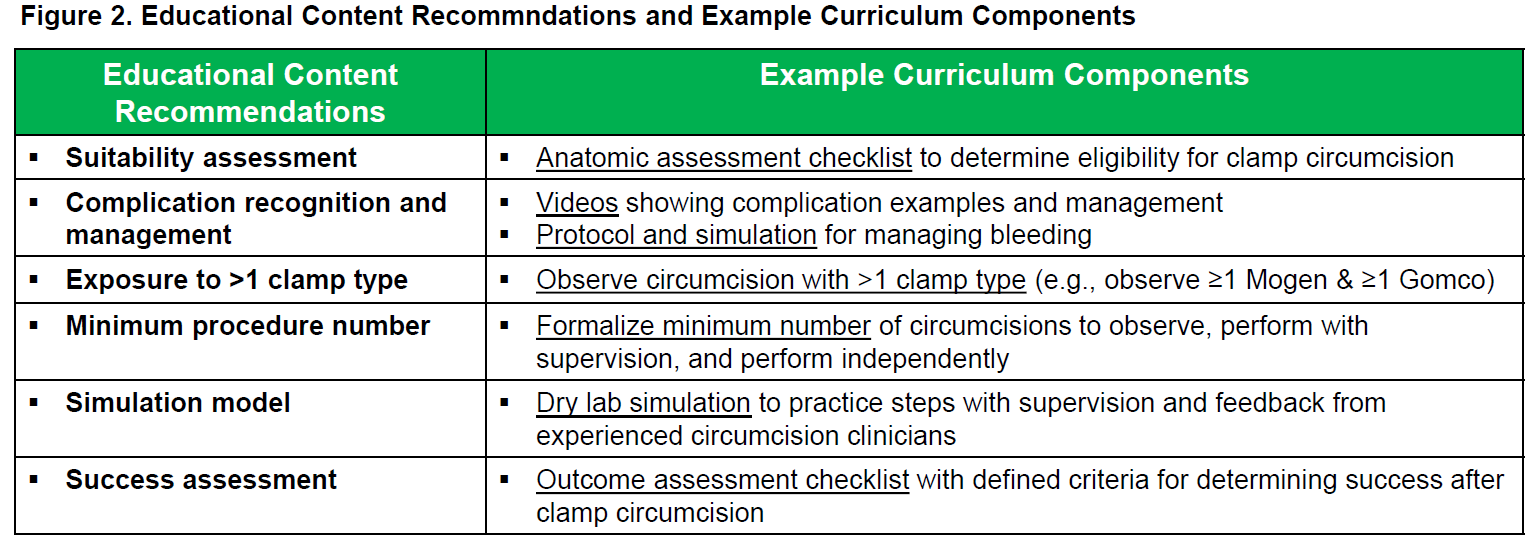Back
Poster, Podium & Video Sessions
Moderated Poster
MP08: Pediatric Urology: Penis & Scrotum
MP08-09: Recommendations to Improve Neonatal Circumcision Training
Friday, May 13, 2022
10:30 AM – 11:45 AM
Location: Room 225
Emilie Johnson*, Ilina Rosokija, Ryan Walton, Derek Matoka, Catherine Seager, Max Maizels, Jane Holl, Chicago, IL

Emilie K. Johnson, MD, FACS, MPH
Northwestern University
Poster Presenter(s)
Introduction: Over half of newborn boys in the United States undergo a neonatal circumcision. The procedure is performed by multiple specialties in both inpatient and outpatient settings, and the approach to training new circumcision practitioners is highly variable. This study aims to describe neonatal circumcision training experiences, current practices, and suggestions for future improvements from physicians who care for newborns.
Methods: Perinatal physicians participated in qualitative interviews about providing newborn circumcision care. Interviews were transcribed, and inductive and deductive qualitative coding of circumcision training-related comments was performed. Training-related themes were summarized, with a focus on strategies for improving the experiences of future circumcision learners.
Results: Physicians specializing in obstetrics, family medicine and pediatrics (N=23) from 11 hospitals in Chicago (city and suburbs; 78% female; 78% currently perform circumcision) participated. Of the 21 participants who were trained to perform circumcision, most reported learning in residency by a “see one, do one, teach one” approach with minimal formal didactic or structured training. For current trainees, participants noted a shift towards more direct supervision and preparation before the procedure, although reported that most circumcision learning was hands-on (Figure 1). Participants desired a more structured approach for future trainees, including the recommendations shown in Figure 2. Specifically, participants recommended a suitability tool, content about complications, training on multiple clamp types, formal procedure minimums, and use of simulation into a future newborn circumcision training curriculum.
Conclusions: Perinatal physicians noted a shift in newborn circumcision training to a more hands-on approach than they experienced personally. Multiple opportunities for improving training were identified, providing the key components for development of a structured newborn circumcision curriculum.
Source of Funding: Urology Care Foundation 2019-2021 Societies for Pediatric Urology Sushil Lacy, MD Research Scholar Award


Methods: Perinatal physicians participated in qualitative interviews about providing newborn circumcision care. Interviews were transcribed, and inductive and deductive qualitative coding of circumcision training-related comments was performed. Training-related themes were summarized, with a focus on strategies for improving the experiences of future circumcision learners.
Results: Physicians specializing in obstetrics, family medicine and pediatrics (N=23) from 11 hospitals in Chicago (city and suburbs; 78% female; 78% currently perform circumcision) participated. Of the 21 participants who were trained to perform circumcision, most reported learning in residency by a “see one, do one, teach one” approach with minimal formal didactic or structured training. For current trainees, participants noted a shift towards more direct supervision and preparation before the procedure, although reported that most circumcision learning was hands-on (Figure 1). Participants desired a more structured approach for future trainees, including the recommendations shown in Figure 2. Specifically, participants recommended a suitability tool, content about complications, training on multiple clamp types, formal procedure minimums, and use of simulation into a future newborn circumcision training curriculum.
Conclusions: Perinatal physicians noted a shift in newborn circumcision training to a more hands-on approach than they experienced personally. Multiple opportunities for improving training were identified, providing the key components for development of a structured newborn circumcision curriculum.
Source of Funding: Urology Care Foundation 2019-2021 Societies for Pediatric Urology Sushil Lacy, MD Research Scholar Award



.jpg)
.jpg)